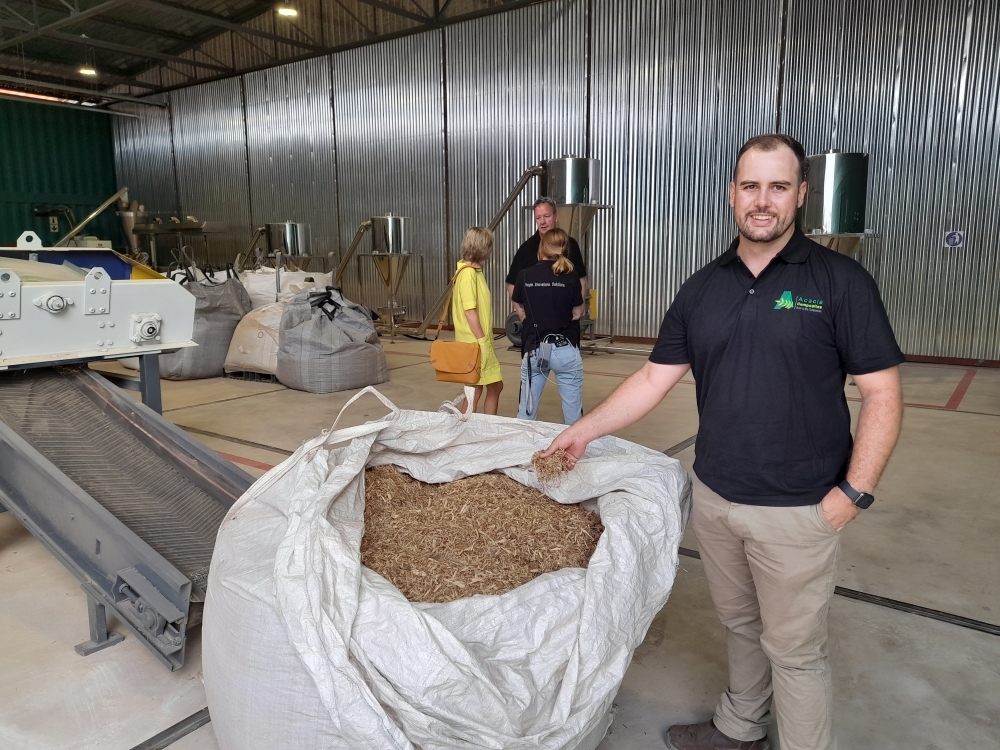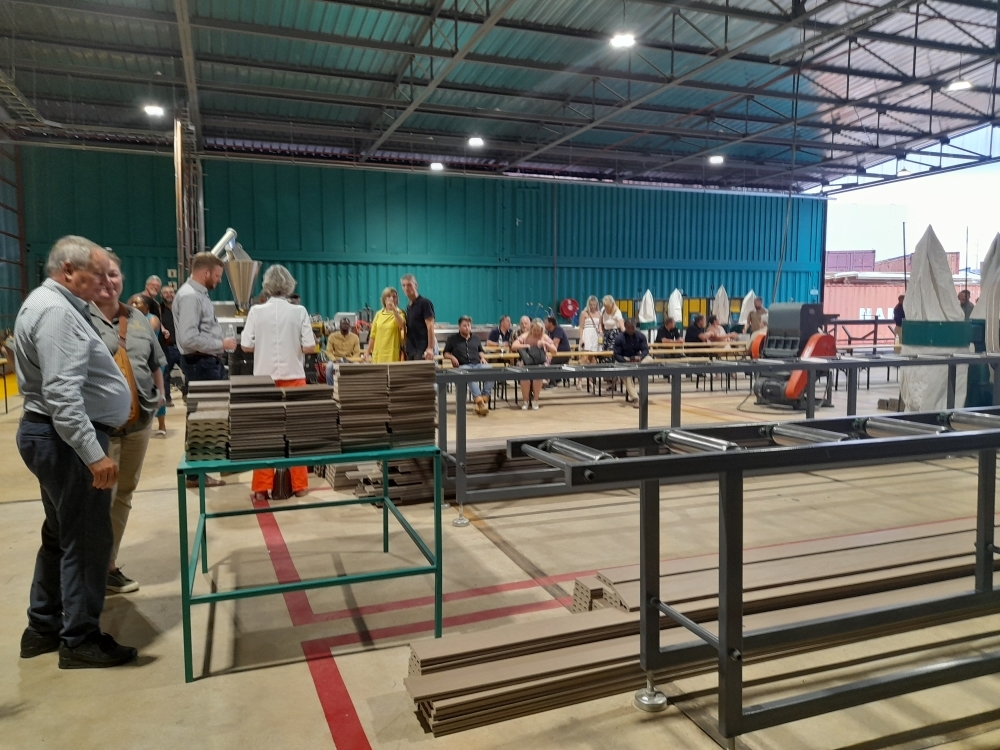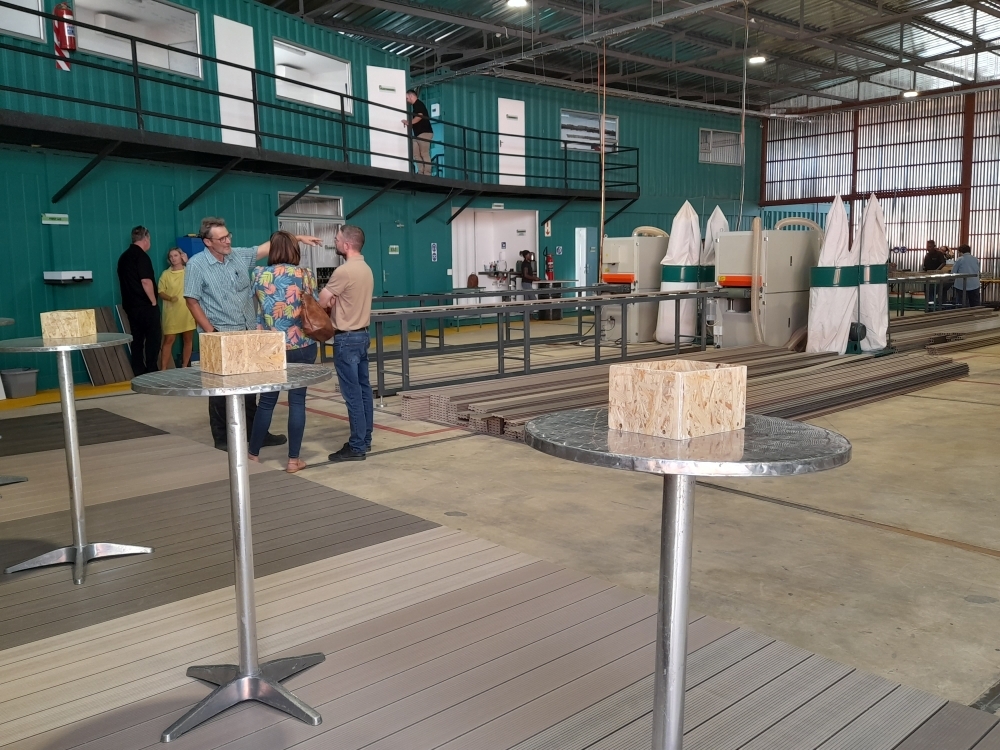Acacia Composites tackles invader bush
Namibian owned
Namibia, with its skilled artisans, tons of invasive forests and sunny days, was an obvious choice for the company.
Acacia Composites reached a major milestone with the opening of a truly Namibian factory in Windhoek, which also fights bush encroachment in the country.Products such as wooden decks, wall coverings and slats are made from a mixture of wood fibres and an environmentally friendly polymer created using recycled high-quality 25 liter plastic bottles.
During the official opening, guests were taken on a tour of the impressive modern factory at 5 Von Braun Street in Cargo City in the southern industrial area.
Acacia Composites is made from invasive species that threaten the natural ecology of Namibia. Removing the invasive forest means re-establishing the natural habitat for wildlife.
Matthias Fechter, Acacia Composites' operations manager, said that the construction of the factory started in March 2023, machinery was imported in June last year and the machines were operational in August 2023.
"Between 60% and 70% of our green products are exported to Germany and we expect to export 20% to South Africa," said Fechter.
Director Heinrich Unland said the main goal is to export the products to the entire Southern African Development Community (SADC) as well as other countries in Europe.
"Our products are of outstanding high quality and quality is what keeps you in business," he said.
When asked why Acacia Composites chose Namibia to establish a factory, Unland said: "Our products are cheaper than in Germany. They are a bit more expensive than China's, but the quality is of an extremely high standard."
In Germany, "good quality" decks, wall coverings and battens must be more than just strong, durable and long-lasting, they must also meet strict certified requirements.
Unland said samples of their products were sent to a laboratory in Germany for research and for the quality to be approved.
Acacia Composites chose to manufacture their products in a friendly African country where they could help create jobs, inspire skills development and uplift communities. For the company, Namibia, with its skilled artisans, tons of invasive forests and sunny days, was an obvious choice.
Unland said that with the factory operating on a 24-hour basis, seven days a week and in two separate shifts a day, more employees would be hired in the future.
"If Namibia Breweries can do it 24/7, so can we," he said.
Acacia Composites creates a variety of jobs, from those who sort recycled plastic bottles to skilled artisans.
In addition, the manufacturing process is designed to minimise waste and energy consumption, further reducing the impact on the environment. The production process is CO2 neutral and will be 100% solar powered in the near future. – [email protected]













